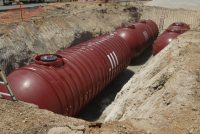Can Suppliers Help Your GHG Emission Reduction Efforts?
Suppliers, if you’re breathing a sigh of relief because so far the EPA has not targeted you to reduce your GHG emissions, don’t settle back just yet. Walmart, et al. may be doing the Agency’s job for it. Recap: Scope 3 emissions include indirect GHG emissions from sources not owned or directly controlled by the company […]









